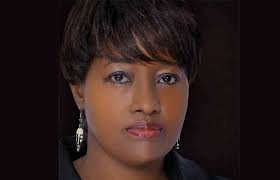THE Private Voluntary Organisations (PVO) Amendment Act has placed “burdensome” requirements for reporting on civil society organisations (CSOs), including those that advocate for women’s and girls’ rights, a UN rights body has said. The law, which was enacted to ostensibly “combat money laundering, terrorism financing and ensure transparency” among non-governmental Organisations (NGOs), has been severely condemned by international observers. The United Nations Human Rights Council’s Working Group on Discrimination against Women and Girls (UNHRCDAWG) chairperson, Laura Nyirinkindi, and deputy Claudia Flores, raised concern over the legislation during a Press conference in Harare. They also called on the government to promote public awareness and prioritise human rights education for all children, grounded in the values of equality, dignity and autonomy. “Women and girl human rights defenders also face increasing restrictions due to the enactment of the Private Voluntary Organisations Amendment Act, which fosters self-censorship among them and imposes burdensome requirements for reporting on civil society organisations,” Flores said.
“Progress on gender equality also requires leadership by those most affected. Empowering women and girls to participate meaningfully in shaping the policies and systems that impact their lives is not only just, it is essential to building resilient, inclusive and thriving communities. “Finally, we urge all stakeholders to remember: gender equality is not a zero-sum goal. A more equal Zimbabwe benefits everyone, men and boys included. ” The UNHRCDAWG said harmful gender norms and barriers were still persistent on Zimbabwean women and girls, with patriarchal dominance fuelling practices such as early marriage, teenage pregnancy and unequal access to education, healthcare and economic opportunities.
“At the same time, significant challenges to attaining gender equality remain. In every province we visited, we heard from women and girls about the persistence of harmful gender norms and the barriers they face in daily life. “These range from early marriage and teenage pregnancy to unequal access to education, healthcare and economic opportunities. “As one interlocutor put it powerfully: In Zimbabwe, gender equality is not a choice, it is a constitutional obligation. If Zimbabwe is to meet that obligation, it must actively confront and eradicate patriarchal attitudes that undervalue women and girls.
” They also called on Zimbabweans to recognise girls’ potential as leaders, political actors, innovators and change makers. “Their full participation in society, including in civic and political life, is essential to the country’s future. Women must have equitable opportunities to thrive in all sectors, from the economy to public leadership. “We are particularly concerned about the high prevalence of child marriage. Despite legal reforms that now criminalise marriage under the age of 18, enforcement remains weak and there have been no prosecutions.
“As of 2022, about 1,4 million women in Zimbabwe were married before the age of 18 and 241 000 before the age of 15. Teenage pregnancy also remains high, with nearly one in four girls becoming pregnant before age 18. This often forces girls out of school, cutting short their education and limiting their independence,” Flores said. They urged government to invest more in targeted support for marginalised, pregnant and married girls. Nyirinkindi flagged the rise in gender-based violence (GBV) on online platforms.
“Gender-based violence remains widespread and underreported. Survivors continue to face stigma, limited support services and significant barriers to justice,” she said. “Child sexual abuse remains a serious concern, with girls left behind by migrant worker parents, unaccompanied minors, girls with disabilities, orphaned girls and girls belonging to religious sects being particularly vulnerable. “We also heard troubling accounts of how GBV is increasingly manifesting in digital spaces. These online platforms, vital for education, connection and expression are becoming increasingly unsafe for girls and women, limiting their free expression.
Original Source: Newsday Com Read Full Article at Source This article was aggregated by AllZimNews.com from trusted Zimbabwean news sources
